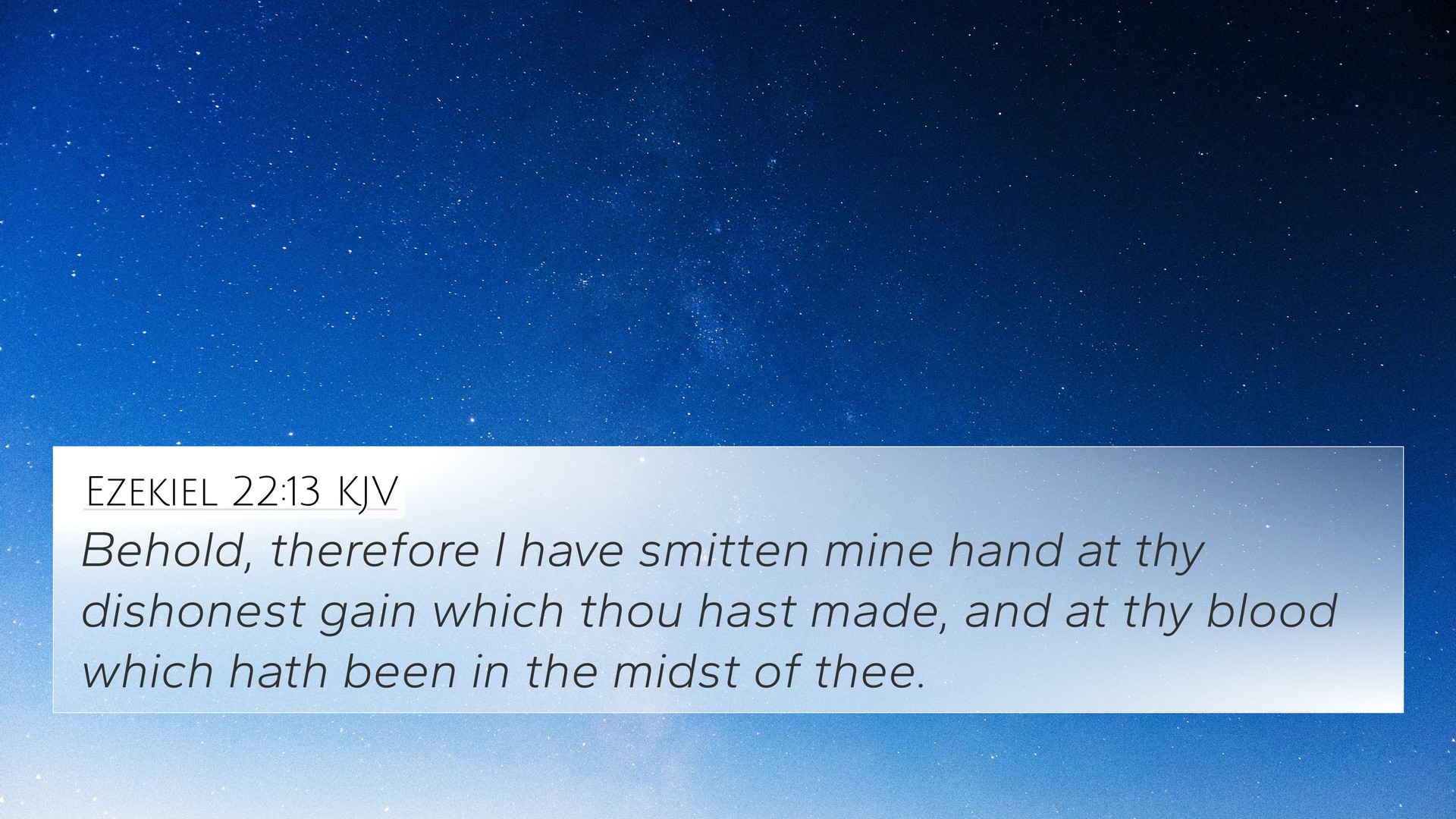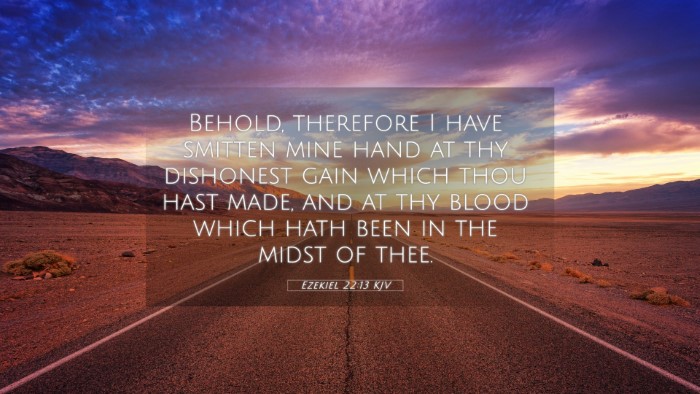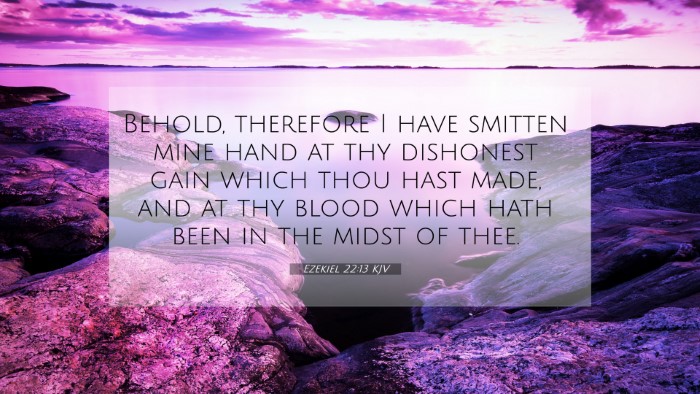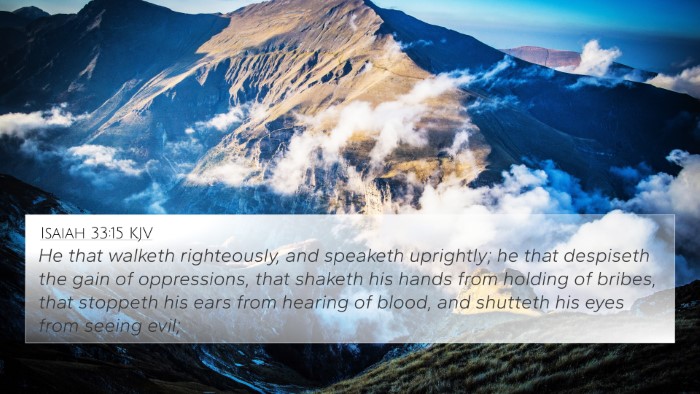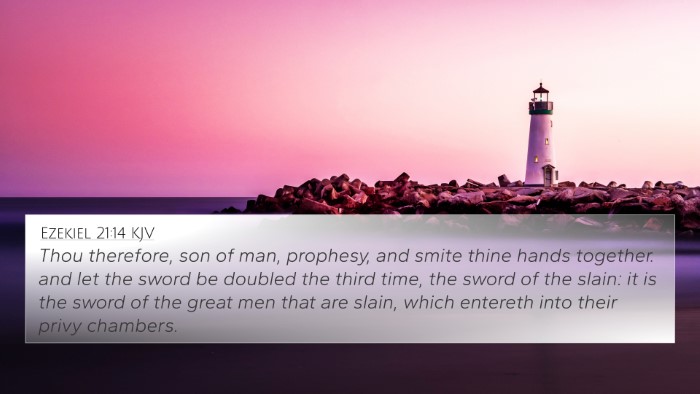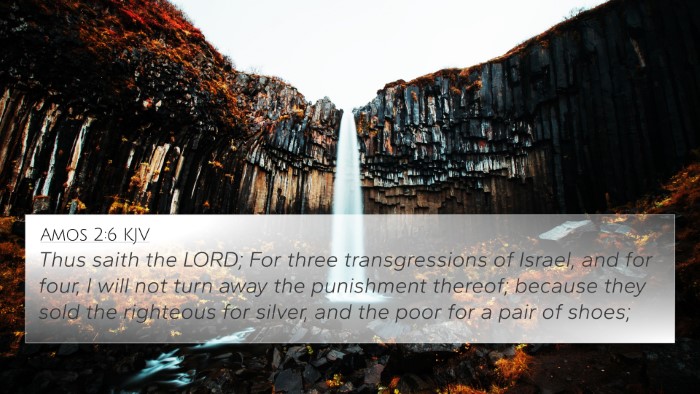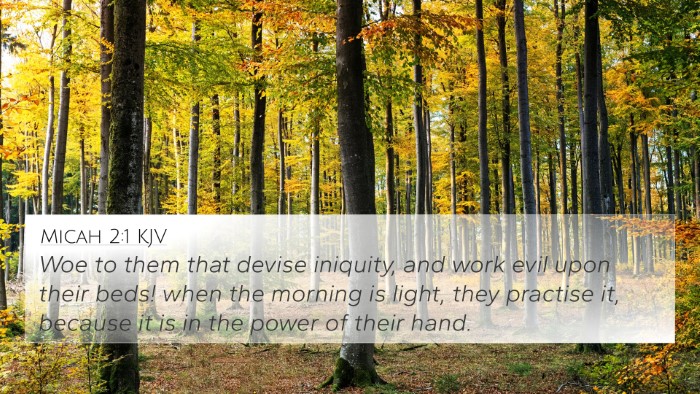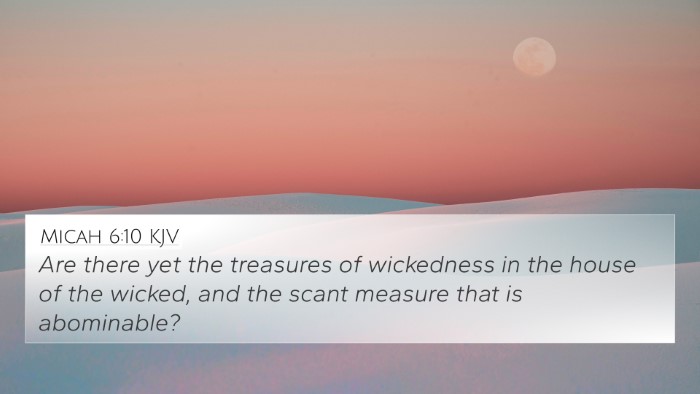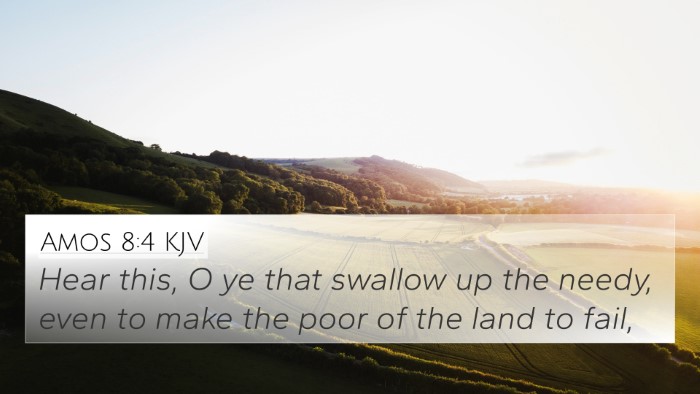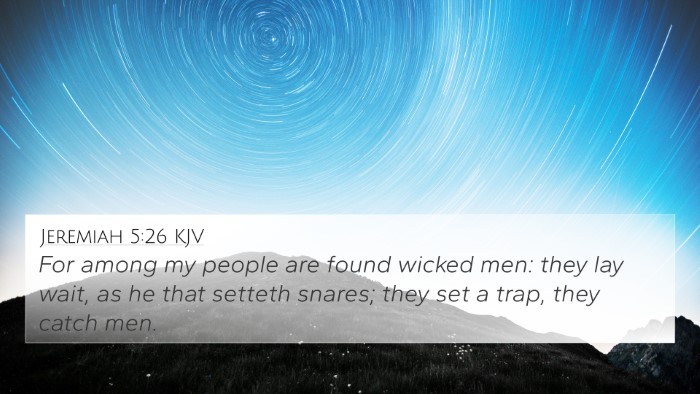Ezekiel 22:13 - Interpretations and Insights
Ezekiel 22:13 states: "Behold, therefore, I have smitten my hand at thy dishonest gain which thou hast made, and at thy blood which hath been in the midst of thee." This verse reflects God's disapproval of the moral and ethical failings of Jerusalem's leaders and the consequences that arise from such behavior.
Understanding the Verse
In this verse, the prophet Ezekiel conveys God's message condemning the injustices prevalent in Jerusalem. The figure of "smiting the hand" symbolizes God's anger and disappointment with the corrupt practices, such as extortion and violence, evident among the people.
Key Themes
- Divine Justice: God's righteousness demands accountability for sinful actions.
- Corruption: The verse highlights the rampant corruption within the community.
- Bloodguilt: The mention of "blood" emphasizes the severity of violence and the consequences tied to it.
Connections Between Bible Verses
This verse can be cross-referenced with various passages that discuss God's judgment and the moral responsibilities of leaders and citizens alike. Below are notable Bible cross-references related to Ezekiel 22:13:
- Isaiah 1:15-17: Discusses God’s disdain for empty rituals and injustices committed in society.
- Jeremiah 22:3: God commands King Josiah to execute justice and righteousness.
- Micah 6:8: A reminder of what the Lord requires: to do justly, love mercy, and walk humbly.
- Proverbs 15:8: Contrasts the sacrifices of the wicked with the prayers of the upright.
- Matthew 23:23: Jesus condemns the Pharisees for neglecting justice and mercy.
- Romans 13:4: Pertains to the role of governing authorities as God's servant to do good and punish wrongdoing.
- James 4:17: To him who knows to do good and does not do it, to him it is sin.
Commentary Insights
Commentaries by biblical scholars provide deeper insights into Ezekiel 22:13:
Matthew Henry: Notes that the "smiting of the hand" signifies God’s deep displeasure with the people’s iniquities. The corruption led to societal decay, and God holds the leaders accountable for their actions.
Albert Barnes: Emphasizes the notion of "dishonest gain," suggesting that the focus is not merely on personal wrongdoing but rather systemic injustices that affect the whole community. This echoes the notion of corporate responsibility in sin.
Adam Clarke: Points out that the reference to "blood" signifies more than just physical violence; it encapsulates the broader idea of moral and ethical decay, encouraging readers to reflect on their societal roles and responsibilities.
Thematic Connections
This verse invites a comparative analysis of the thematic connections between the Old and New Testaments:
- Justice and Righteousness: Commonly emphasized across both Testaments.
- God’s Anger Towards Injustice: A consistent theme in prophetic literature.
- Accountability of Leaders: Stressed in both the message of the prophets and the teachings of Jesus.
Application and Reflection
For a believer today, Ezekiel 22:13 serves as a warning against complacency in the face of injustice. It urges an introspection on personal and communal ethics in light of divine judgment:
- Self-Examination: Consider personal contributions to societal issues.
- Pursuing Justice: Actively seek justice within one's community.
- Encouraging Accountability: Hold leaders accountable for ethical governance.
Further Study and Cross-Referencing Tools
To enhance your understanding of Biblical texts, utilizing tools for Bible cross-referencing can be invaluable. Consider the following resources:
- Bible Concordance
- Bible Cross-Reference Guide
- Cross-Reference Bible Study Techniques
- Comprehensive Bible Cross-Reference Materials
Conclusion
In conclusion, Ezekiel 22:13 speaks volumes about the nature of divine justice and the moral responsibilities of leaders and citizens. By studying this verse within its broader scriptural context, we can appreciate the interconnectedness of Biblical themes and apply these lessons to our lives.
